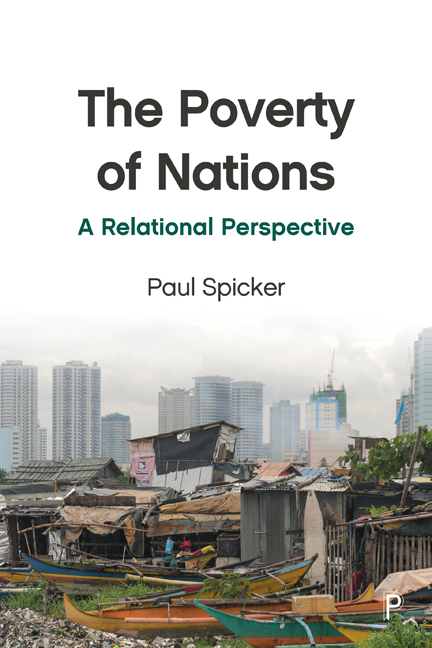Conclusion: Poverty and Social Science
Published online by Cambridge University Press: 18 March 2021
Summary
Over the course of the 20th century, the concept of poverty adhered to by social scientists became progressively more distant from the experience of poor people. When Charles Booth compiled his reports on poverty in the 1880s, the political discussions of the time homed in on his ‘poverty line’ (not, in point of fact, a ‘line’ at all). Rowntree's subsequent work on poverty refined that concept, centring our attention on subsistence and household incomes. Most of the work done between the 1960s and 1990s focused on income. The main models that were used by social scientists – subsistence needs, baskets of goods and income thresholds – were developed to analyse a limited set of problems, examining the position of poor people within specific countries and polities. The use of a common income threshold across countries was an attempt to extend this kind of discussion to comparative studies; the development of various indices, such as the Human Poverty Index or the indices used by the International Fund or Agricultural Development, were others.
While this was going on, however, alternative approaches and understandings of poverty were being developed – among them, the emphasis on entitlements and basic security emphasised in international organisations, the concept of exclusion developed in France and subsequently adopted by the EU and the UN, and forceful accounts of the experience of poverty in developing countries which emphasised the structure of power. Another key influence was the development of a methodology for examining poverty, most strongly advocated by Robert Chambers and subsequently adopted for the World Bank's seminal studies on Voices of the Poor. Those studies pointed to a range of issues such as precariousness, social isolation, gender and disempowering institutions, which conventional studies of poverty, still focused on resources and income, had hardly touched on. Over the course of the last 25 years or so, there have been new measures, new approaches and a range of policy initiatives – the Poverty Reduction Strategies, the Sustainable Development Goals or the integration of anti-poverty work with human rights.
The flaws in mainstream approaches to poverty were less obvious during the 1960s and 1970s, when poverty studies were concerned primarily with a single country. As the focus of social policy has shifted to a comparative or international base, the conceptual problems have become more salient, and more difficult to resolve.
- Type
- Chapter
- Information
- The Poverty of NationsA Relational Perspective, pp. 195 - 202Publisher: Bristol University PressPrint publication year: 2020



